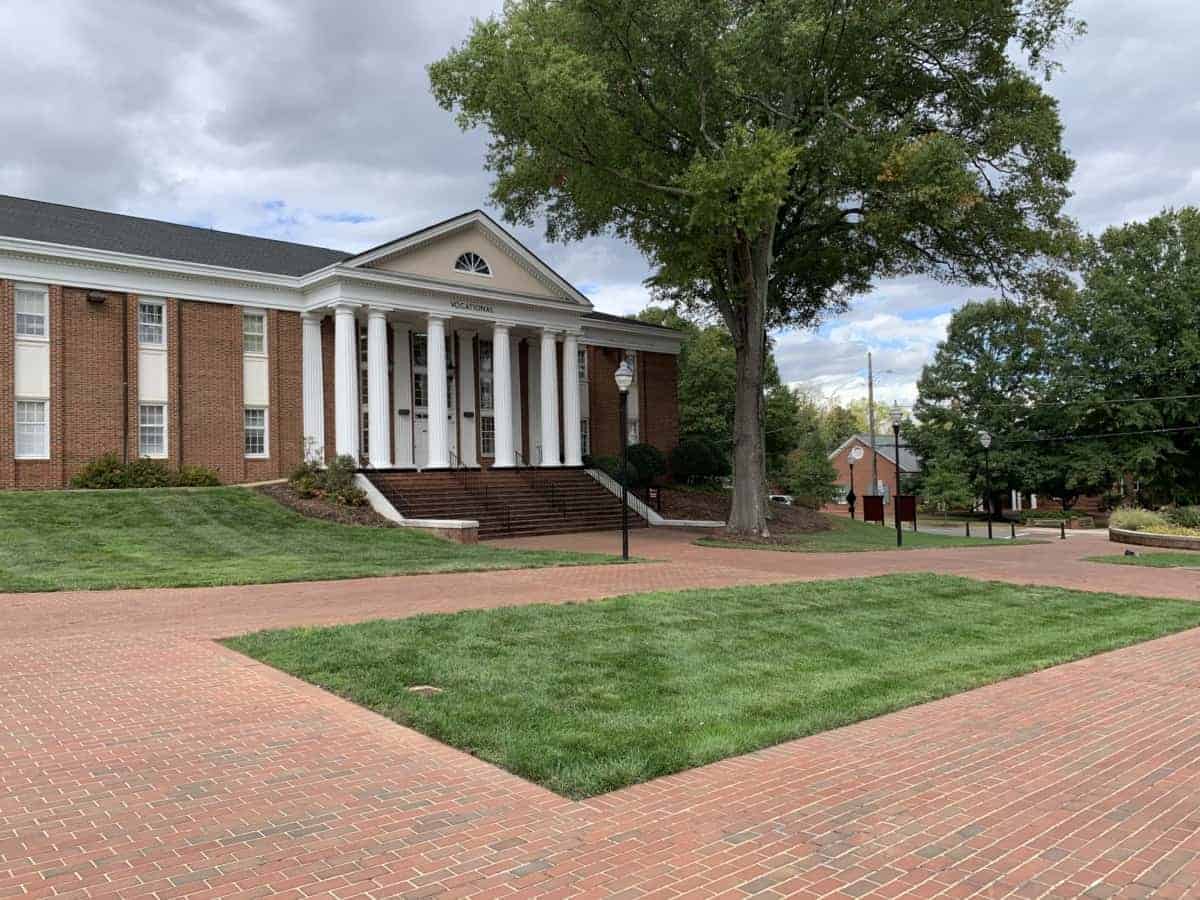
Community colleges began in the basements of high schools, Amanda Rhea says as she’s navigating traffic en route to one of Iredell-Statesville Schools’ early colleges. Rhea is the director of education partnerships at Mitchell Community College, so it’s her job to coordinate the college experience for early college high school students.
“We’re really a natural fit for them to be on campus,” she said. “At our core, we serve high school students, so there’s always been this link.”
The link is strong in Iredell County, where the district has three early colleges that are partnered with Mitchell Community College. Students in this area have a variety of options for college and workforce preparation, and the community college’s enrollment has benefitted, too.
As Rhea darts from the community college, where her office is located, to each of the three early colleges and back, you get a strong sense of familiarity – both in the proximity of everything and in partnership among the schools.
Early colleges provide Iredell-Statesville students the opportunity to graduate from a five-year program with a high school diploma and an associate degree, which can include up to two years of transferable college credit at no cost to the student for tuition or books.
The schools cover a range of focus areas. Collaborative College for Technology and Leadership (CCTL) opened in 2005 and sits in the heart of MCC’s campus. Crossroads Arts Sciences Early College (Crossroads) is located in central Iredell County on the third floor of Statesville High School. And the newest early college, Agriculture and Science Early College (ASEC), opened two years ago adjacent to North Iredell High School.
“We are all supportive of each other,” Crossroads principal Alicia Eller said. “We work together and help each other a lot.”
CCTL provides a technology-intensive, leadership-focused curriculum for students in grades 9-13. The curriculum is designed to meet the individual needs of students, preparing them for an increasingly digital job market or to continue their education at a four-year institution.
As the county’s first early college, it went through the initial growing pains of starting a new innovative offering and educating the community on what an early college is. Teri Hutchens took over as principal about seven years ago. One of the biggest things Principal Teri Hutchens remembers is working with parents and students to understand that the simultaneous high school and college experience means a more rigorous academic standard.
“You might have been a straight-A student at your old school,” she said, “but it’s harder [here]. But you’re getting such a high-quality education.”
Students at all three early colleges begin getting college credits in ninth grade, when they take a college prep course on succeeding in college. But at CCTL, first-year students also take a digital literacy course that earns them a college certificate, so they actually get to walk in the college’s graduation after their freshman year.
At Crossroads, students have the opportunity to pursue a general education with all honors coursework and also enjoy an expansive selection of arts classes and clubs, such as dance, art, theater, band, chorus, piano, and guitar.
“Dance is something that is unique to this early college,” Eller said. “With Statesville High School downstairs, we’re the only high school that offers an actual fine arts magnet [program].”
The focus at each of the schools was chosen intentionally, with the district and community college looking at data and surveying interests to determine needs. The community college has even expanded its offerings as a result.
“We have created some certificates locally, you know, to specifically meet the need for early college students,” Rhea said. “Our traditional students can enroll in those certificates as well. But they were created with these high school students in mind.”
The commitment to focusing on local needs, in fact, prompted the opening of ASEC in 2017. The district felt the needs of northern Iredell weren’t being met through early college programs, so they started exploring a third school. Northern Iredell is mostly a farming community, where the average family farm is 125 acres. North Iredell High School already had the state’s largest Future Farmers of America program, so pairing it with an agriculture-focused early college just made sense.
It is the first early college in North Carolina with a focus on agriculture.
“Thankfully, I had two successful early colleges in the system already with two very helpful and dynamic principals who were willing to take me under their wing and guide me through the process of getting this school up and running,” ASEC principal Bill Wells said. “Good relationships and getting the right staff in place were key.”
Students at ASEC share land, barns, and animals with the high school next door and get practical, hands-on training.
ASEC will also play host this year to an annual event that unites the three early colleges: While the trio of schools are spread out across the county, the schools share a prom and each school takes turns hosting.
“It’s a great community among us,” Wells said.


